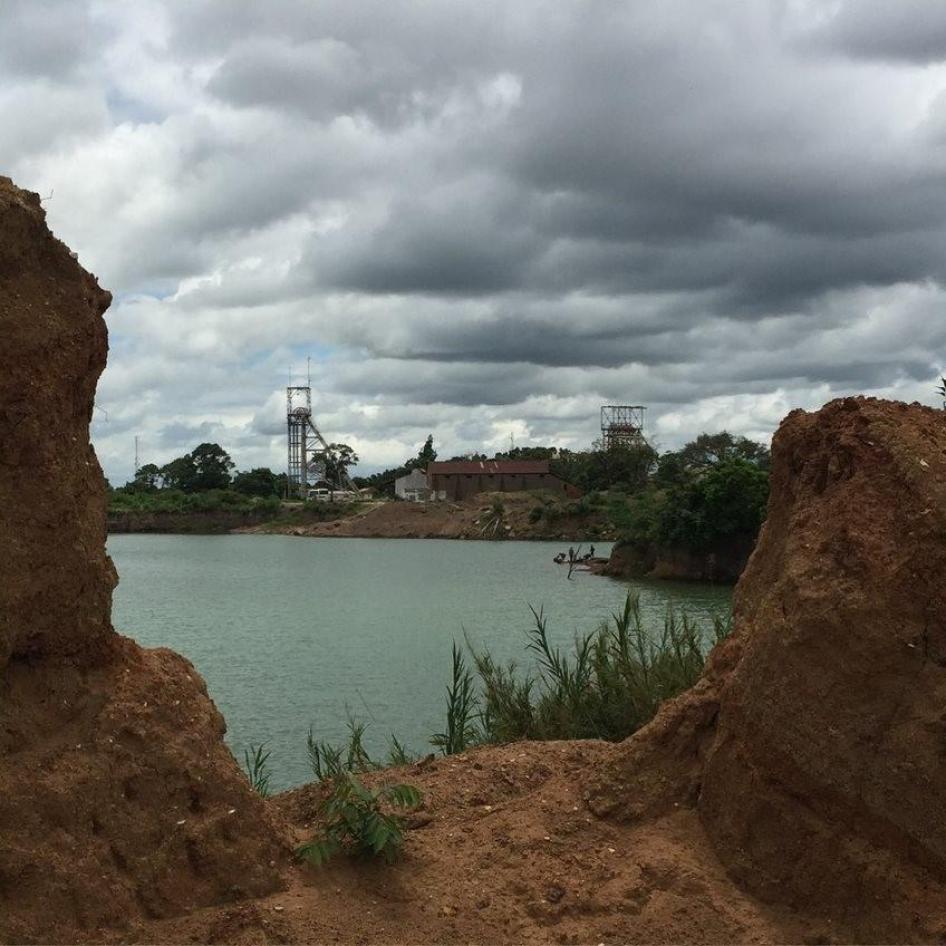“Henry” is thin and small for his age. The 10-year-old, his mum and I are sitting outside in the dusty, poor township of Waya in the Zambian city of Kabwe on a hot, dry afternoon.
His mum, looking weary, describes their life near the city’s former lead and zinc mine. She worries about her children’s health and tells Henry and his siblings to avoid the dust that blows over from there.
A few years ago, Henry was found to have extremely high amounts of lead in his blood, high enough to warrant immediate treatment, according to medical experts. But he never received any medical care.
Kabwe’s mine dates to the colonial period: a British company opened the mine in 1904. Anglo American took over in 1925 and remained in charge for nearly 50 years. Early on, doctor’s certificates revealed that smelter workers experienced lead poisoning, but the company continued to mine, smelt and poison the environment.
In 1974, Zambia nationalised the mine and closed it 20 years later. A comprehensive cleanup was never undertaken. The government subsequently issued several licences for companies to mine the site, allowing them to further harm people and the environment.
And so, 25 years after the mine closed, children’s homes, schools and play areas are highly contaminated, resulting in extremely high levels of lead in their blood.
More than 6-million tons of mining waste remain in place, and dust from these uncovered waste dumps blows over nearby residential areas. The most visible dump is known locally as the “Black Mountain”.
About half of children living in the affected neighbourhoods need medical treatment, experts say. Lead can cause stunted growth, anaemia, learning difficulties, organ damage, coma and convulsions, and even death. Children are particularly vulnerable.
When Human Rights Watch visited Kabwe in 2018 public health facilities had no kits for lead testing, nor any medicine. Many residents said they felt fearful, and helpless. “You see dust is everywhere. It is all over. So, this lead just can’t stop spreading,” Henry’s mother told me. “The president should bring us medicine,” Henry added.
The Zambian government has issued a large-scale mining license to British company Berkeley Mineral Resources (BMR), which is planning to reprocess lead, zinc and vanadium from the mine’s waste in a joint business venture with SA company Jubilee Metals
Human Rights Watch wrote to both companies asking what they were doing to prevent harm; BMR referred us to Jubilee Metals, and Jubilee Metals did not respond.
An environmental impact assessment submitted by a BMR subsidiary in 2015 was grossly insufficient, according to experts consulted by Human Rights Watch. It lacked vital information and failed to demonstrate how the new venture would protect the community from harmful effects.
The government recently said it will require a new environmental and social impact assessment. The government is indeed responsible for ensuring that any waste-reprocessing activities comply with Zambia’s environmental laws and are scrutinised for harmful human rights and environmental consequences.
The government has also issued a few licences for small-scale mining in Kabwe. Such mining in lead-contaminated soil carries huge health risks for miners’ families and the wider community as it produces more dust, and workers carry dust home.
So far, efforts by the government to clean up residential areas and test and treat children have been insufficient; even the World Bank, which funded the efforts a decade ago, has acknowledged problems. A new World Bank-funded project began in December 2016. After a slow start, testing and treatment are to be made available in the coming months, which should bring relief to the families of Henry and many others. There are also plans to clean up homes and possibly schools.
But unfortunately, this new effort is not the proper, lasting, and comprehensive cleanup Kabwe needs. That would include the former mine — the source of the contamination — as well as roads, schools, and all homes and public places nearby. The government told Human Rights Watch it does not have the resources for such a cleanup.
The UK law firm Leigh Day has announced it is preparing a class-action case against Anglo American SA on behalf of people from Zambian communities near Kabwe mine who are suffering from lead exposure.
Leigh Day and its SA partner attorneys are seeking compensation for victims of lead poisoning, including the cost of an effective medical-monitoring system for blood lead levels among the community.
Win or lose, the case is a powerful reminder that the Kabwe legacy and the children who are still being poisoned as a result can no longer be ignored.










